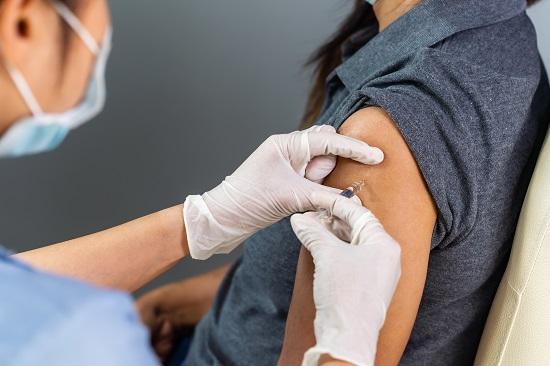

Some have resorted to sharing links on social media, allowing for registration to the vaccine; an overworked and beleaguered healthcare system is largely unable to stop them. Other, more wealthy individuals have resorted to more extreme methods of gaming the system, like a couple that chartered a plane, flew to the Yukon, lied about having quarantined and then took vaccines meant for indigenous elders, giving America a trifecta of reasons to despise them.
Closer to home, however, have been reports of coaches of college teams receiving the vaccine, which occurred through ethical means. And while some might bristle about it, it does bring up a question: where should event owners be in the vaccination line?
With many teachers saying they won’t go back to in-person teaching unless they receive the vaccine, understanding that there are students whose parents refuse to comply with quarantine orders and social distancing mandates – as well as those who don’t believe in vaccination – the concept of getting vaccinations for coaches and for owners of youth events, as well as those who manage and work in spors venues, all of whom also have to be around that same population – doesn’t seem to be that much of a stretch.
Of course, nobody is suggesting that event owners, venue operators and others jump the line. But the question is valid: where should they stand in the priority line?
USA TODAY provided interesting insights, noting that on the pro level, “sports’ place in line may initially be determined by how “essential” athletes are considered in providing entertainment and distraction. Come February, the NBA and NHL will be nearing midseason, MLB teams will report to spring training and the NFL will stage its Super Bowl. Golf and tennis tours will be in full swing; college basketball hopes to welcome back March Madness.”
But in terms of the sheer numbers of tournaments put on, and the potential amount of money year-round coming into cities – particularly cities with venues and sports commissions to attract them, amateur and youth sports are an essential market sector.
So should event owners – including tournament rights holders, race directors and national governing bodies, venue managers and staff, all of whom are onsite and in the midst of large gatherings, also be considered “essential workers?”
The arguments are strong: event owners and rights holders (and by extension, sports commission and CVB members, venue owners and coaches) are essential to bringing business back to cities. And all those people are generally onsite during events. Like teachers, they necessarily have to interact with large groups of people (athletes and spectators as well as officials, media and others) who may or may not be vaccinated or following health protocols. As perhaps some of the most high-risk individuals out there – and those responsible for the long-term financial health of the community, shouldn’t they be practicing preventive medicine themselves? What about those who work in hotels and convention centers? They too are going to be essential to the comeback.
While the way seems clear for those who work with senior athletes, it’s nowhere near as cut-and-dried for youth events. Coaches of senior teams, for example, could be considered a shoo-in for the vaccine. But those who organize youth and amateur adult tournaments are a different matter. Where do they stand? They are often below the age group of those being vaccinated but are they working on the frontlines? Or does it depend upon whether or not a city is hosting tournaments yet and what its caseload is? If the event owner is traveling, an even more complicated dynamic comes into play.
Those with money – and status – will always be able to move to the head of the priority groups; however, this move is fraught with problems, not the least of which is the public relations nightmare. NBA Commissioner Adam Silver said that the NBA “in no form or way will jump the line” regarding vaccinations. And the question of whether Olympic athletes should be vaccinated early is still raging, with some urging priority vaccination in order to allow every possible chance for the Games to go on, and others saying it's a form of elitism (and line-jumping).
Immunologist Anthony Fauci recently estimated vaccines could be available to the general public by late March or April. And immunization in March or April could allow for summer tournaments to be underway. But there are still signs that there may not be a clear path to recovery. USA TODAY notes that reaching herd immunity to accommodate capacity crowds may prove elusive. While Fauci estimated that 85 percent of the population would need to get vaccinated to achieve immunity, a recent Associated Press poll indicated 25 percent of Americans won't accept the vaccine when offered.
Bottom line: It could be even longer than we know before COVID is defeated. And that sets back economic recovery even further.

